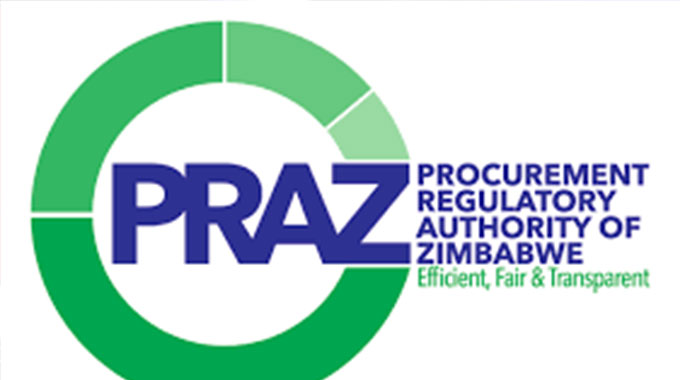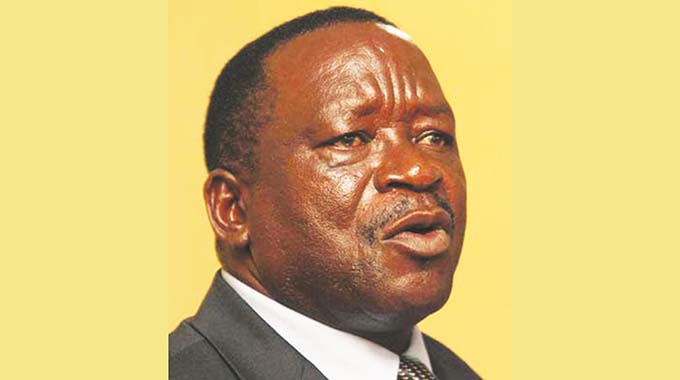No further moratorium for non-compliance: Praz

Oliver Kazunga, Senior Business Reporter
THE Procurement Regulatory Authority of Zimbabwe (Praz) has ruled out the possibility of an extension of a moratorium on procuring entities to align their procurement processes with the new regulations governing procurement and disposal of goods.
In January last year, Government promulgated the Public Procurement and Disposal of Assets Act to ensure that procurement and disposal of goods was instituted in a transparent, fair, honest, cost effective and competitive manner.
To allow procurement entities to comply with the Public Procurement and Disposal of Assets Act, Praz made a transitional grace period of two years beginning January 1, 2018 to December 31 this year.
In a recent interview in Bulawayo, Praz chief executive officer, Mr Nyasha Chizu, said they were not going to extend the moratorium given to procurement entities.
“The warning is that within these two months that are left, people need to shape up or ship out so that we comply with the Act,” he said.
The Public Procurement and Disposal of Assets Act is in sync with Section 315 of the Constitution, which advocates for a procurement system that is transparent, fair, and honest and achieves value for money. Of late, Mr Chizu said through their capacity building unit, they have engaged local authorities and the Public Service Commission to ensure compliance with the Act.
“We have seen quite a remarkable traction with respect to compliance with the Act when it comes to the staff of the procurement management unit as well as alignment of the procurement management unit in line with the Act. We have actually engaged through our capacity building unit in all local authorities, you find all local authorities are almost like 100 percent compliant.
“We also engaged the Public Service Commission and in terms of all Government ministries we can safely say they are 100 percent compliant. What is lacking at the moment is with respect to our parastatals,” he said.
Before the promulgation of the Public Procurement and Disposal of Assets Act, Mr Chizu said procurement was either a responsibility of finance or human resources departments. Against this background some individuals within the procurement entities have remained adamant to let go the procurement function from finance and human resources departments.
“There are some people who think that this is a passing phase such that if they hold onto the procurement functions, they would win the case but what we can only say is that our transitional period according to the current Act is ending on the 31st of December 2019,” he said.
“After that date, they should have complied with the provisions of the Act in full and failure to comply will have its consequences.”
The State Procurement Board, whose integrity had been tainted by scandals in the past, was transformed from a procurement agent into a regulatory authority, Praz. Last year, Praz embarked on a series of sensitisation workshops across the country to encourage procurement businesses to adjust their processes and align to the Act. The Public Procurement and Disposal of Assets Act regulates the whole procurement cycle from procurement planning, approaches to the market, evaluation and award of tenders, contract management and disposal of assets.
It also provides for modernisation and professionalisation of public procurement as well as covering public entities as defined in Section 2 of that Act. Commenting on the professionalisation of the procurement profession, Mr Chizu said this would assist in curbing issues of violations of the Act by individual officers.
“We are having our regulations for professionalisation, which are also at consultation stage and once we have those regulations in place, we are going to issue a licence to practice,” he said.
It is hoped that once one breaches the code of conduct, the licence to practice in the procurement profession will be withdrawn.
The coming into effect of the Public Procurement and Disposal of Public Assets Act has created several job opportunities for citizens with requisite qualifications. In recent months, there has been a flurry of adverts in the mainstream media as companies and local authorities seek to establish the position of procurement officer in line with the new law. — @okazunga












Comments